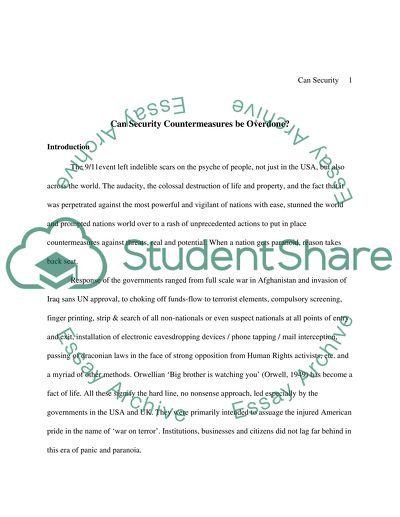Cite this document
(“Can Security Countermeasures be Overdone Essay Example | Topics and Well Written Essays - 2500 words”, n.d.)
Can Security Countermeasures be Overdone Essay Example | Topics and Well Written Essays - 2500 words. Retrieved from https://studentshare.org/miscellaneous/1537381-can-security-countermeasures-be-overdone
Can Security Countermeasures be Overdone Essay Example | Topics and Well Written Essays - 2500 words. Retrieved from https://studentshare.org/miscellaneous/1537381-can-security-countermeasures-be-overdone
(Can Security Countermeasures Be Overdone Essay Example | Topics and Well Written Essays - 2500 Words)
Can Security Countermeasures Be Overdone Essay Example | Topics and Well Written Essays - 2500 Words. https://studentshare.org/miscellaneous/1537381-can-security-countermeasures-be-overdone.
Can Security Countermeasures Be Overdone Essay Example | Topics and Well Written Essays - 2500 Words. https://studentshare.org/miscellaneous/1537381-can-security-countermeasures-be-overdone.
“Can Security Countermeasures Be Overdone Essay Example | Topics and Well Written Essays - 2500 Words”, n.d. https://studentshare.org/miscellaneous/1537381-can-security-countermeasures-be-overdone.


